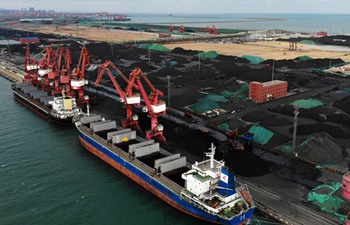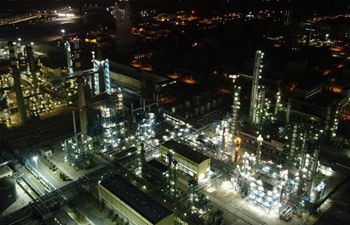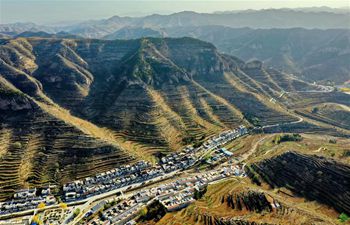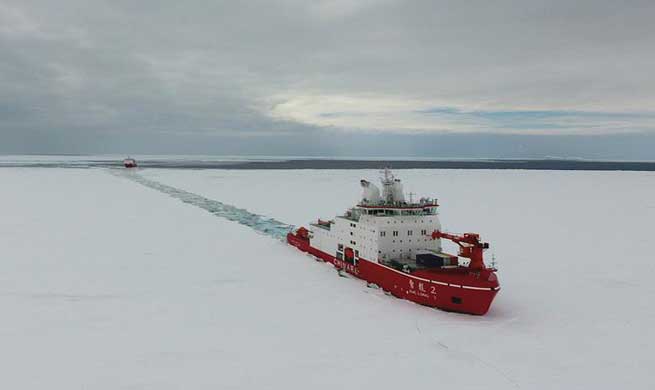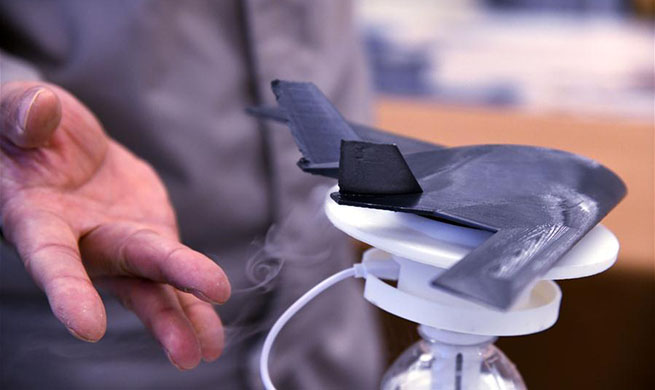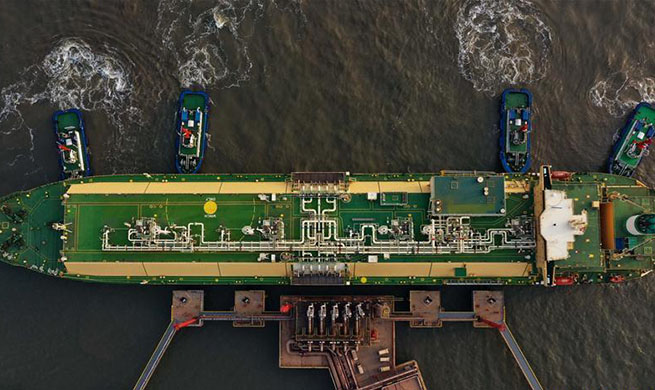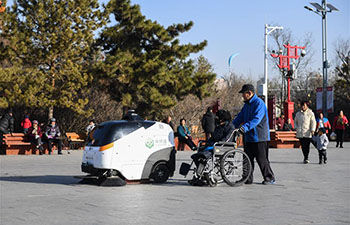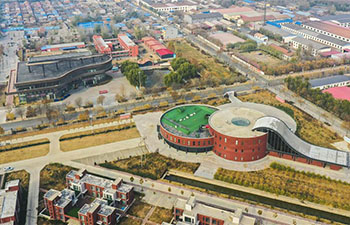by Nick Kolyohin
JERUSALEM, Nov. 22 (Xinhua) -- In the coming future, Israeli tap water would be 100 percent desalinated. Moreover, nearly 100 percent of the sewage would be recycled and reused, according to Israel's Energy Minister.
In an interview with Xinhua, during a water technology conference, Israeli Minister of Energy and Water Resources Yuval Steinitz said that he sees a future where Israel would provide water for itself.
Steinitz was one of many high-level officials and water industry global leaders that gathered at Israel's largest water conference, WATEC 2019, which was held from Monday to Thursday in Tel Aviv, Israel.
Oren Blonder, co-chairman of WATEC 2019, said about 1,500 decisionmakers, ministers, and governors from around the world attended the event.
"The Israeli water system is unique in the world. We desalinate about 80 percent of our drinking water, and in the future, it's will go up to 100 percent," Steinitz said.
"Roughly 90 percent of our sewage is being treated, recycled, and reused for farming or gardening. The No.2 country in sewage recycling rate is Spain with 17 percent," he added.
The recycling gains extra water for agriculture, irrigation, and industry, and prevents pollution in rivers, springs, and seas. Today, there is almost no sewage pollution in Israel.
Less rainfall has worsened dehydration of Israeli natural waters, mainly the Sea of Galilee. The new national plan is to stream desalinated water from the Mediterranean Sea to natural water resources.
"Huge pipe would carry the water to refuel the Sea of Galilee, the rivers and springs, to take care of nature's needs," Steinitz told Xinhua.
The Israeli minister stressed that the leading global future challenge would be the supply of fresh and high-quality water for drinking and farming.
The world is already in the middle of the water crisis. Though the Western world is not suffering it, the developing countries and regions are facing scarcity of fresh water.
The conference's participants have discussed building cooperation and collaboration to tackle the water issue.
U.S. Environmental Protection Agency (EPA) Administrator, Andrew Wheeler, said in an interview with Xinhua that "1,000 children die every single day from a lack of potable water".
"I think it's an international crisis that we have not dealt with internationally," said Wheeler.
The technologies to provide safe drinking water already exist, and it is just a matter of cost or political decision to deploy those technologies to all the places in need.
As Wheeler, many other officials came to Israel to look for solutions to the urgent problem of increasing shortage in clean drinking water.
Israel is considered a world leader in desalinating, recycling, and reusing water for drinking and farming.
"We have guests from over 35 countries coming here in high-level delegations to find the solutions," said Matan Safran, director WATEC 2019.
In almost impossible conditions with a semi-arid environment, Israel succeeded in producing artificially all the water it needs.
It still costs money, some pollution, and further energy use. However, it provides the basic need of each human being: drinkable water.
One of the Israeli companies, WFI Group, showed at the conference its ability to make clean drinking water recycled from sewage, with allegedly high quality.
The only problem, said the company representative, is a psychological barrier of people to drink water that came out of sewage.
More than 100 of exhibitors showcased their best technologies at the conference to attract investment and collaboration in order to make a profit and help solving the global problem.
Israel currently exports approximately 2.4 billion U.S. dollars in water technology and equipment annually, and this figure continues to grow every year, according to the organizers' statement.
The leading markets for Israeli water technology exports include the United States, Spain, China, India, Mexico, Australia, Turkey, and South Africa.
Adiv Baruch, chairman of Israel Export Institute, told Xinhua that Israel works on scaling up its technologies to deal with the global water shortage issue.
"I think that every country that has a challenge in water needs to contact other countries with similar challenges, and then to create a working group together," Safran suggested.
"International cooperation is key. We must overcome different opinions and different political views to cooperate for water problem solutions. Because if not, we will all be in a problem," he added.





